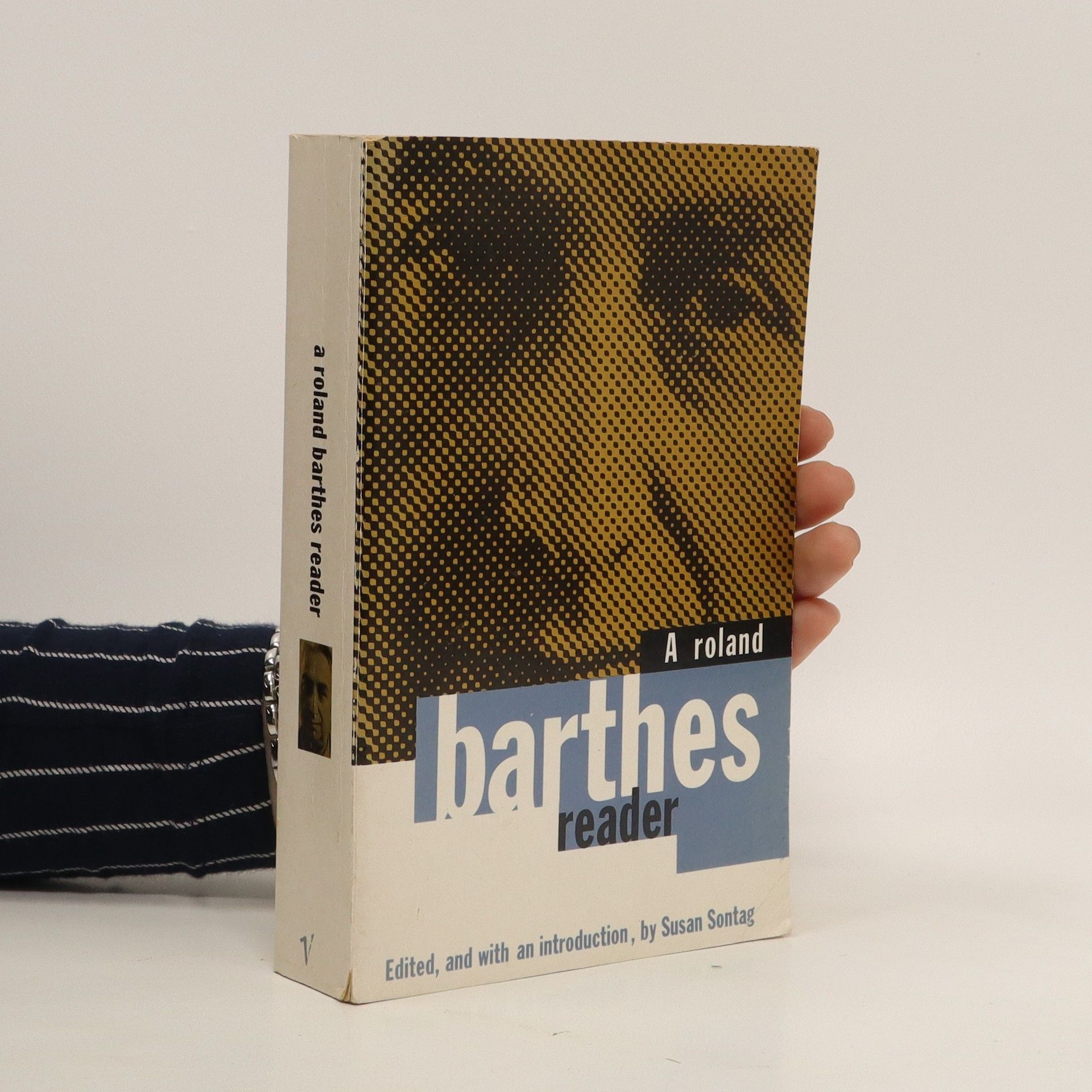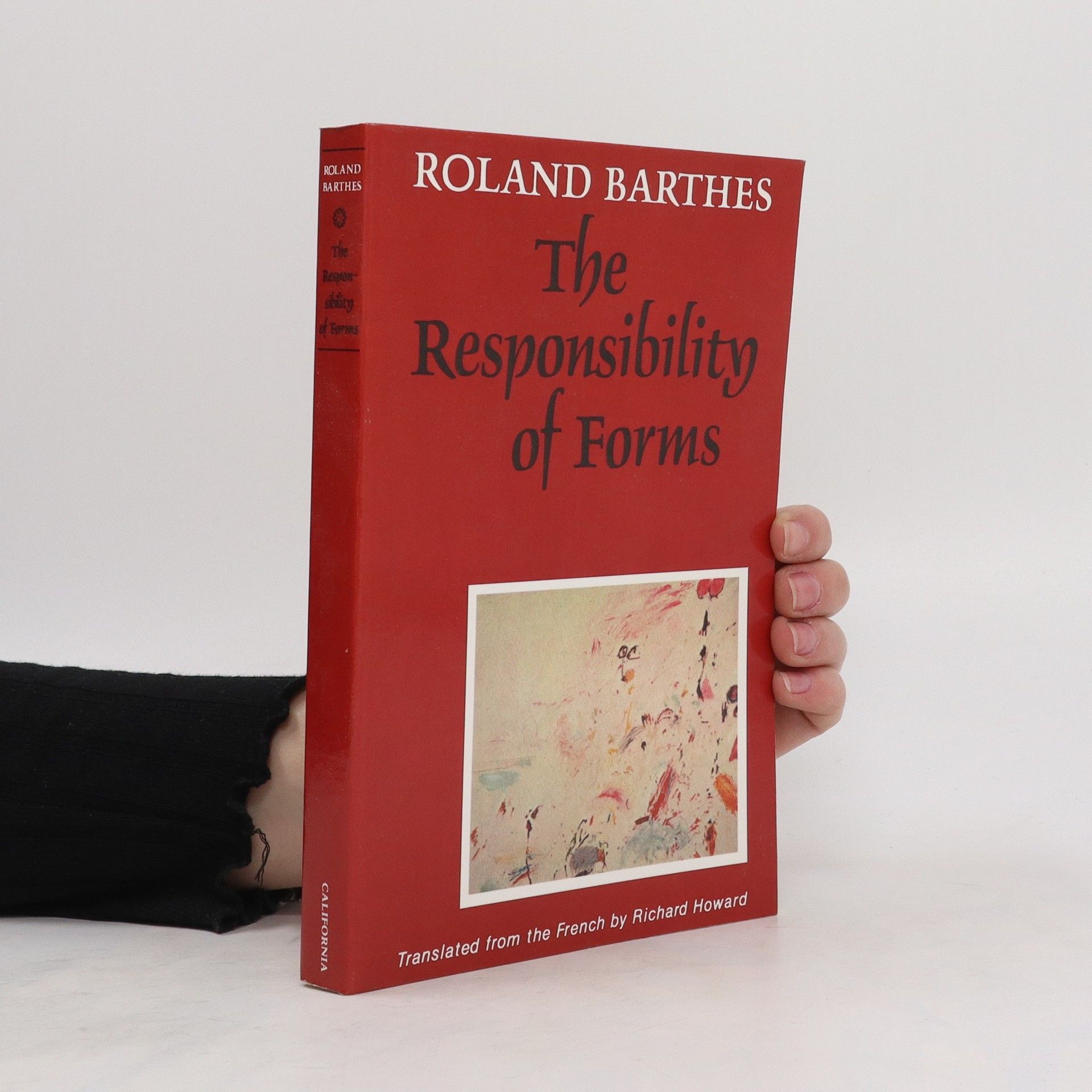Completed just weeks before his death, the lectures in this volume mark a critical juncture in the career of Roland Barthes, in which he declared the intention, deeply felt, to write a novel. Unfolding over the course of two years, Barthes engaged in a unique pedagogical experiment: he combined teaching and writing to "simulate" the trial of novel-writing, exploring every step of the creative process along the way. Barthes's lectures move from the desire to write to the actual decision making, planning, and material act of producing a novel. He meets the difficulty of transitioning from short, concise notations (exemplified by his favorite literary form, haiku) to longer, uninterrupted flows of narrative, and he encounters a number of setbacks. Barthes takes solace in a diverse group of writers, including Dante, whose La Vita Nuova was similarly inspired by the death of a loved one, and he turns to classical philosophy, Taoism, and the works of François-René Chateaubriand, Gustave Flaubert, Franz Kafka, and Marcel Proust. This book uniquely includes eight elliptical plans for Barthes's unwritten novel, which he titled Vita Nova, and lecture notes that sketch the critic's views on photography. Following on The Neutral: Lecture Course at the Collège de France (1977-1978) and a third forthcoming collection of Barthes lectures, this volume provides an intensely personal account of the labor and love of writing.
Roland Barthes Boeken
Roland Barthes was een Franse literatuurtheoreticus wiens ideeën een divers scala aan velden verkenden en de ontwikkeling van theoretische scholen beïnvloedden, waaronder structuralisme, semiotiek, sociale theorie en poststructuralisme. Zijn denken behandelde een breed spectrum aan onderwerpen, en zijn benadering van de analyse van teksten en cultuur vormde de moderne literatuurkritiek. Barthes' invloed is duidelijk zichtbaar in verschillende disciplines, en zijn werk blijft zowel academici als lezers inspireren met zijn innovatieve perspectief op taal en betekenis.







The Grain of the Voice: Interviews 1962-1980
- 384bladzijden
- 14 uur lezen
The collection features a majority of Roland Barthes's interviews from various French publications, showcasing his distinctive voice and perspectives on topics such as cinema, fashion, writing, and criticism. Through these conversations, readers gain insight into Barthes's profound intelligence and influence, revealing his thoughts and reflections in a direct and engaging manner. This compilation offers a unique glimpse into the mind of one of the 20th century's most significant intellectuals.
A Lover's Discourse
- 240bladzijden
- 9 uur lezen
'May be the most detailed, painstaking anatomy of desire that we are ever likely to see or need again... An ecstatic celebration of love and language' Washington Post The language we use when we are in love is not a language we speak. It is a language addressed to ourselves and to our imaginary beloved. It is a language of solitude, of mythology, of what Barthes calls an 'image repertoire'. Reviving the notion of the amorous subject beyond psychological or clinical enterprises, Barthes' A Lover's Discourse is a book for everyone who has ever been in love, or indeed, thought themselves to be immune to its power.
A major discovery: The lost diary of a great mind—and an intimate, deeply moving study of grief The day after his mother's death in October 1977, the influential philosopher Roland Barthes began a diary of mourning. Taking notes on index cards as was his habit, he reflected on a new solitude, on the ebb and flow of sadness, and on modern society's dismissal of grief. These 330 cards, published here for the first time, prove a skeleton key to the themes he tackled throughout his work. Behind the unflagging mind, "the most consistently intelligent, important, and useful literary critic to have emerged anywhere" (Susan Sontag), lay a deeply sensitive man who cherished his mother with a devotion unknown even to his closest friends.
Mourning Diary: October 26, 1977 - September 15, 1979
- 288bladzijden
- 11 uur lezen
"In the sentence ‘She's no longer suffering,' to what, to whom does ‘she' refer? What does that present tense mean?" —Roland Barthes, from his diary The day after his mother's death in October 1977, Roland Barthes began a diary of mourning. For nearly two years, the legendary French theorist wrote about a solitude new to him; about the ebb and flow of sadness; about the slow pace of mourning, and life reclaimed through writing. Named a Top 10 Book of 2010 by The New York Times and one of the Best Books of 2010 by Slate and The Times Literary Supplement, Mourning Diary is a major discovery in Roland Barthes's work: a skeleton key to the themes he tackled throughout his life, as well as a unique study of grief—intimate, deeply moving, and universal.
An introduction to the thinking of the French intellectual, Roland Barthes, as applied to such diverse topics as Gide, Garbo, striptease, photography and the Eiffel Tower. The pieces in this collection were written over a period of three decades.
Image-Music-Text brings together major essays by Roland Barthes on the structural analysis of narrative and on issues in literary theory, on the semiotics of photograph and film, and on the practice of music and voice.Throughout the volume runs a constant movement from work to text: an attention to the very ‘grain’ of signifying activity and the desire to follow – in literature, image, film, song and theatre – whatever turns, displaces, shifts, disperses.Stephen Heath, whose translation has been described as ‘skilful and readable’ (TLS) and ‘quite brilliant’ (TES), is the author of Vertige du déplacement, a study of Barthes. His selection of essays, each important in its own right, also serves as ‘the best... introduction so far to Barthes’ career as the slayer of contemporary myths’. (John Sturrock, New Statesman)
These late essays of Roland Barthes's are concerned with the visible and the audible, and here the preoccupations are particularly intense and rewarding, in part because Barthes was himself, by predilection, an artist and a musician, and in part because he was of two minds about the very possibility of attaching to art and to music a written text, a criticism.
"Masculine, Feminine, Neuter" and Other Writings on Literature
- 168bladzijden
- 6 uur lezen
Masculine, Feminine, Neuter focuses on Roland Barthes' insights into literature, exploring his relationships with peers and influences across various languages and eras. This volume is part of a comprehensive five-volume collection, showcasing Barthes' evolution as a cultural critic and his transition from structuralism to literary semiology. The essays, interviews, and reviews highlight his innovative approach and enduring impact on literary theory, making this collection a significant resource for understanding his contributions to 20th-century thought.
What is it that we do when we enjoy a text? What is the pleasure of reading? The French critic and theorist Roland Barthes's answers to these questions constitute "perhaps for the first time in the history of criticism . . . not only a poetics of reading . . . but a much more difficult achievement, an erotics of reading . . . . Like filings which gather to form a figure in a magnetic field, the parts and pieces here do come together, determined to affirm the pleasure we must take in our reading as against the indifference of (mere) knowledge." --Richard Howard


